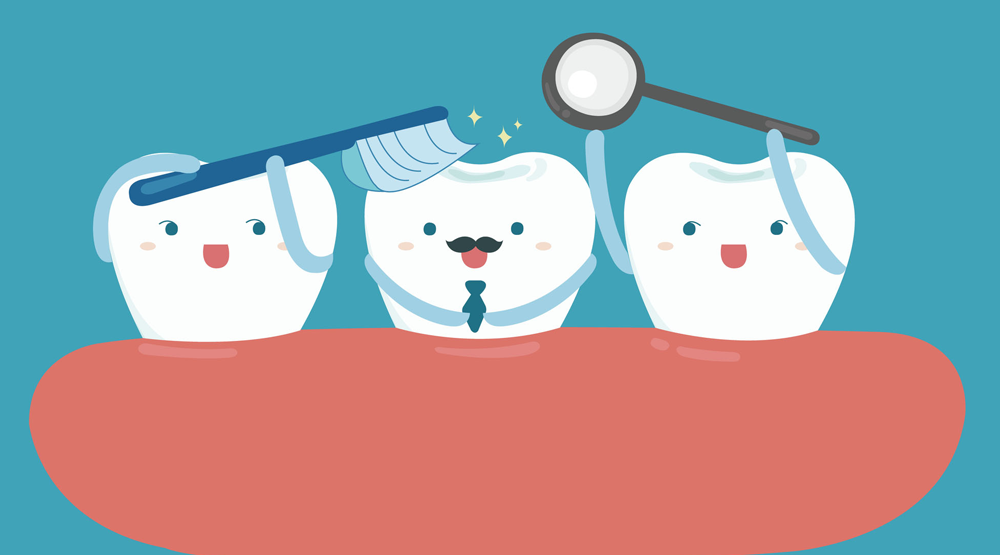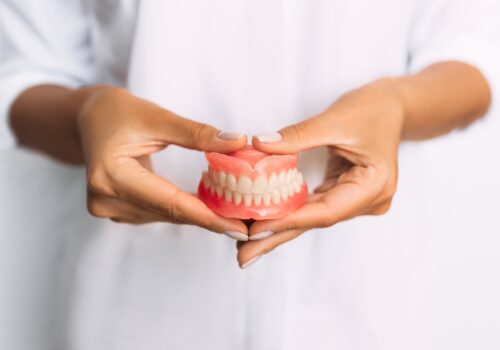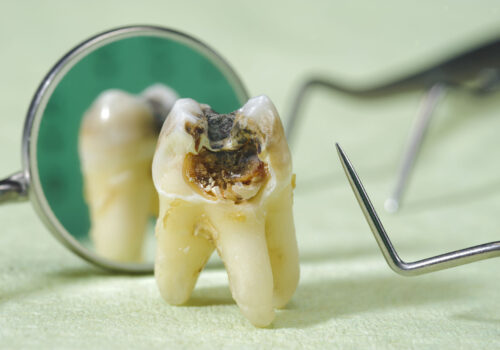
Oral health is linked to whole-body health, which means that problems with your teeth and gums can lead to other health concerns like heart disease, stroke and more. Periodontist Sasha Ross, DMD, MS, explains the connection between oral health and the rest of your body, including how you can best practice good dental hygiene.
Why oral health matters
You might think of your mouth as separate from the rest of your body, whether because your dentist is different from your doctor, or because your dental insurance isn’t bundled with the rest of your health insurance.
“In reality, though, you should think of your mouth as an extension of the rest of your body,” Dr. Ross says. “By looking in a person’s mouth, I often get a sense of what their overall health is.”
Having poor oral health can include conditions like:
- Gingivitis, when bacteria infect your gums. It’s a mild, early form of gum disease.
- Periodontal disease is a gum infection that leads to inflamed gums and bone loss around teeth.
- Tooth decay, like from untreated cavities.
What can happen if you have poor oral health?
Beyond yellowing smiles and bad breath, poor oral health can also contribute to a number of health issues that affect your whole body. Dr. Ross explains some of the most critical among them.
Cardiovascular disease
The umbrella term “cardiovascular disease” refers to a group of disorders related to your heart and your blood vessels. Having poor oral health is associated with forms of cardiovascular disease like:
Coronary artery disease:
As the most common type of heart disease, coronary artery disease can lead to heart attack, heart failure and more. It’s the leading cause of death in the UAE.
Clogged arteries:
Studies show that people with periodontal disease have significantly higher rates of atherosclerosis, when plaque builds up inside the blood vessels that deliver blood and oxygen from your heart to your body.
Stroke:
Studies show a strong association between periodontal disease and strokes, specifically strokes related to atherosclerosis.
A caveat, though: “Keep in mind that even though cardiovascular disease and periodontal disease are associated with each other, there’s so far no evidence that one causes the other,” Dr. Ross says.
Endocarditis
If you have heart disease or other heart-related health issues, you’re at a higher risk of developing endocarditis, an inflammation of the lining of your heart valves (and sometimes the lining of your heart chambers).
“Endocarditis is caused by a bacterial infection that you can contract during procedures like tooth extractions,” Dr. Ross explains. “It doesn’t typically affect healthy hearts, but if you have existing heart issues, it can be fatal.”
Pregnancy and birth complications
When you’re pregnant, there’s extra reason to take care of your body — including your mouth. In people who are pregnant, poor oral health is associated with:
- Fetal growth restriction.
- Gestational diabetes.
- Low birth weight.
- Miscarriage.
- Stillbirth.
- Preeclampsia.
“Again, the thought is that oral bacteria can travel into the bloodstream and cause harm to the fetus,” Dr. Ross warns.
Pneumonia
Having cavities has been linked to developing pneumonia, a lung infection caused by bacteria, viruses or fungi.
“The thinking is that bacteria from the mouth can aspirate into the upper airway and into the lungs, which may be related to causing pneumonia,” Dr. Ross explains. “It also makes it easier for the bacteria that cause respiratory infections to stick in the lungs.”
Other issues
Of course, having a healthy mouth is key to your ability to consume healthy meals. “The act of eating, which is essential for our survival, really depends on having teeth in your mouth and healthy teeth and gums,” Dr. Ross says.
Untreated cavities can lead to poor nutrition and stunted growth and development in children. They can also cause issues like:
- Cellulitis (a bacterial infection)
- Facial swelling.
- Gum disease.
What affects your oral health?
There are a few factors that contribute to the relationship between oral health and systemic health. Dr. Ross explains some of the links.
Common risk factors
Periodontal disease and systemic disorders share a number of common risk factors, including:
- A poor diet, especially one high in sugar.
- Tobacco use.
- Excessive alcohol use.
- High stress.
All of these things can cause periodontal disease or cavities, and they can also cause systemic health disorders — so it makes sense that if you have one or more of these risk factors, you might have other related health concerns.
Genetics
Blame it on Mom and Dad: “Certain people are just more predisposed to developing periodontal disease and systemic diseases,” Dr. Ross explains.
Your body’s response to bacteria
This one isn’t genetic, per se, but it is related to your unique and inherent bodily responses.
“Everyone’s body responds to bacteria differently,” Dr. Ross says. “For instance, our bodies mount a huge response to bacteria that can, in some people, cause inflammation and other damage.”
Levels of inflammatory molecules like C-reactive protein are often elevated in people who have both periodontal disease and systemic disease.







Leave a Reply